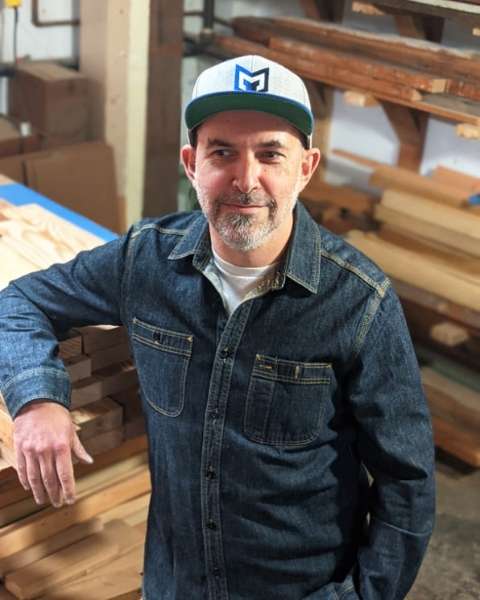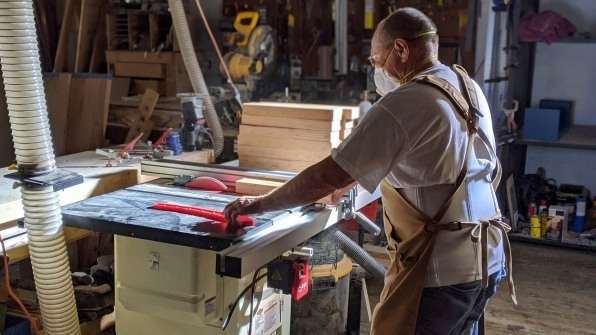Volunteers Remove 9,200-lbs. of Trash From One of the Dirtiest Rivers in the US
In a weekend cleanup, volunteers with Keep the Tennessee River Beautiful dug out 9,200 pounds of trash from the banks of the Tennessee River.

Recycling talent and material, Formr makes quirky furniture pieces from salvaged construction site garbage while using the woodworking talent of formerly incarcerated individuals.
Operational for only 9 months, Formr has nevertheless hired six ex-convicts and designed 10 clever pieces of home furniture such as a coat rack, a laptop desk for your couch, and tables with tech features built into them, all ranging between $89 and $500.
Sasha Plotitsa is a California-based industrial designer who was hired to design a cannabis dispensary—one that would eventually be closed down from pressure by the federal government in 2009.

It was through this process he came to understand firsthand a very American problem: the percentage of non-violent drug offenders in prison populations.
"I saw for myself what the failed war on drugs looked like," Plotitsa told Elizabeth Segran of Fast Company. "When someone comes out of prison, they have to check the box on a job application that says they have a record. That makes it very hard for them to get their life back on track."
Attempting to tackle waste and recidivism rates, Plotitsa started regularly phoning contractors and asking if he could stop by and dig through their construction site garbage. Old wood, plasterboard, rusted pipes, shattered concrete; all this construction waste adds up to 500 million tons, as Formr estimates, and more than 100 tons goes unrecycled.
At the same time, he started employing formerly incarcerated people, particularly those from prisons with woodworking shops, which many correctional facilities in California indeed have.

"It's quite a process," he details, describing the path to furniture whereby he builds a relationship with a contractor, goes and digs through their waste, finds the best bits, sanitizes them, and removes all the nails and screws before he can start making a piece.
Often, he finds, it can be difficult keeping his workers on staff, as life after prison can often be volatile and unstable. Still, there are some success stories.
One of this staff, Gary Harrell, spent a life-shattering 45 years in prison, but nevertheless loved working with Formr creating furniture. He started making his own artistic pieces, which have since been picked up by institutions and galleries such as the Smithsonian, MoMA PS1 in New York City, and the Library of Congress.
As drug laws, particularly those pertaining to marijuana, are rolled back around the country, there are millions of people who will have to tick a box on a job application that says "I was convicted of a felony."
It's the work of people like Sasha that will help ensure that these people cast out unfairly are welcomed back into society.
SET This Inspiring Story Free By Sharing it on Social Media, Uplifting Your Friends…
Be the first to comment